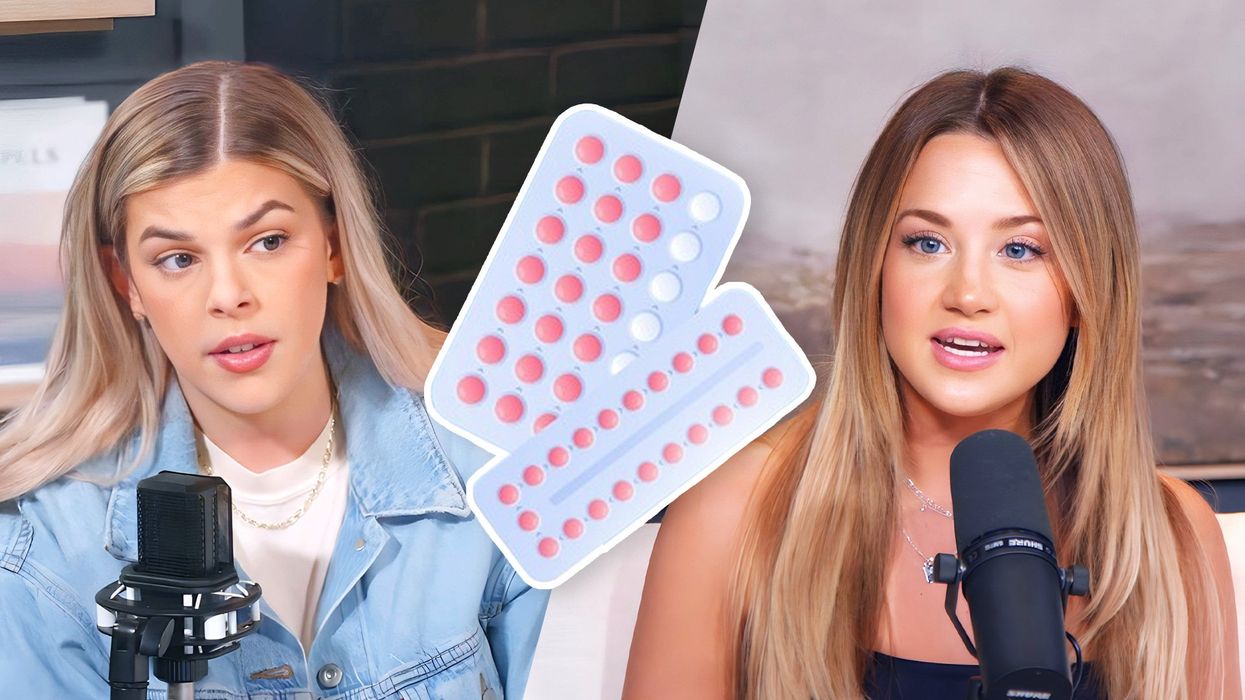
© 2026 Blaze Media LLC. All rights reserved.
Health coach explains the potential connection between hormonal birth control and bisexuality in women
March 02, 2024
Emily Detrick, @littleraeofhealth on Instagram, is a certified health coach who specializes in helping “women balance their hormones naturally using mostly food as medicine.”
On this episode of “Relatable,” Emily joins Allie Beth Stuckey to discuss the sinister (and often dismissed) side of birth control.
A long and arduous journey to her own healing led Emily to discover the detrimental effects of birth control when it comes to our hormones.
Many women will recall doctors telling them that birth control has a host of benefits, including regulating your period and balancing your hormones, but according to Emily, these are lies.
“The second I got off birth control, I felt a million times better,” she tells Allie, adding that it felt like “coming home to [herself].”
“Basically none of them are good,” she explains. “I don’t think any woman needs to be on birth control for any reason,” as birth control “doesn’t regulate anything.”
For those who believe that birth control regulates your period, Emily attests that “you don’t get a period on birth control” but rather “a withdraw bleed from withdrawing from the fake hormones,” like “fake progesterone, fake estrogen.”
And for those who praise non-hormonal birth control methods, such as the increasingly popular copper IUD, Emily says that not only is “copper toxicity a big issue,” but also that copper “increases estrogen” and actually “[inflames] your uterus.”
Further, teenagers and young women who are put on birth control “are 70% more likely to be prescribed antidepressants and anti-anxiety medication.”
But that’s not the only “psychological impact” hormonal birth control can have, apparently.
“You also may be more likely to be bisexual if you are on the pill and that it can actually change who you are attracted to,” says Allie, referencing Dr. Sarah Hill. “I’ve also heard the argument that women may be ... more attracted to more feminine men ... when they are on the pill.”
“This is true,” says Emily. “There’s data, there’s studies” to confirm this.
“One of the [studies] they did is they showed women on birth control ... AI mockups of men, and then they slightly feminized their features,” Emily explains. “Women on birth control chose the men with more feminine features.”
There was also a study called “the sweaty T-shirt test,” which involved having “a bunch of different men work out in these sweaty T-shirts and put them in bags.” Then female test subjects — some of whom were on birth control and others who were not — were instructed to “smell them, essentially smelling their pheromones.”
They found that “the women who were on birth control chose the scent of men who were more genetically similar to them,” which Emily says is problematic considering “the most viable, resilient offspring” demand “someone with the DNA farthest from you.”
To learn more, watch the episode below.
Want more from Allie Beth Stuckey?
To enjoy more of Allie’s upbeat and in-depth coverage of culture, news, and theology from a Christian, conservative perspective, subscribe to BlazeTV — the largest multi-platform network of voices who love America, defend the Constitution, and live the American dream.
Want to leave a tip?
We answer to you. Help keep our content free of advertisers and big tech censorship by leaving a tip today.
Want to join the conversation?
Already a subscriber?
News, opinion, and entertainment for people who love the American way of life.
BlazeTV
BlazeTV Staff
News, opinion, and entertainment for people who love the American way of life.
@BlazeTV →more stories
Sign up for the Blaze newsletter
By signing up, you agree to our Privacy Policy and Terms of Use, and agree to receive content that may sometimes include advertisements. You may opt out at any time.
Related Content
© 2026 Blaze Media LLC. All rights reserved.
Get the stories that matter most delivered directly to your inbox.
By signing up, you agree to our Privacy Policy and Terms of Use, and agree to receive content that may sometimes include advertisements. You may opt out at any time.






